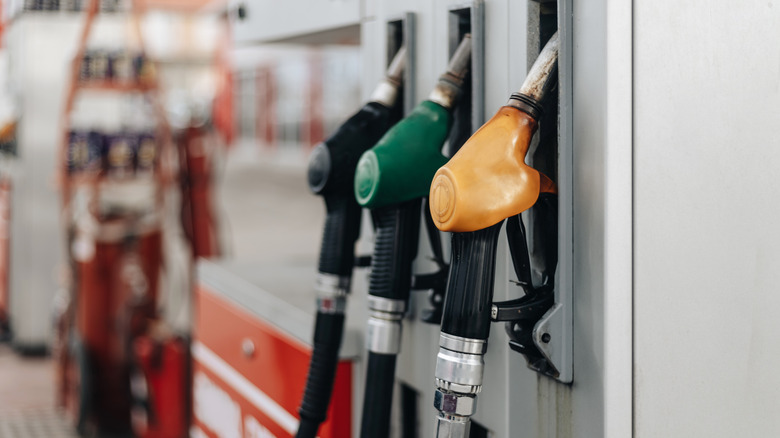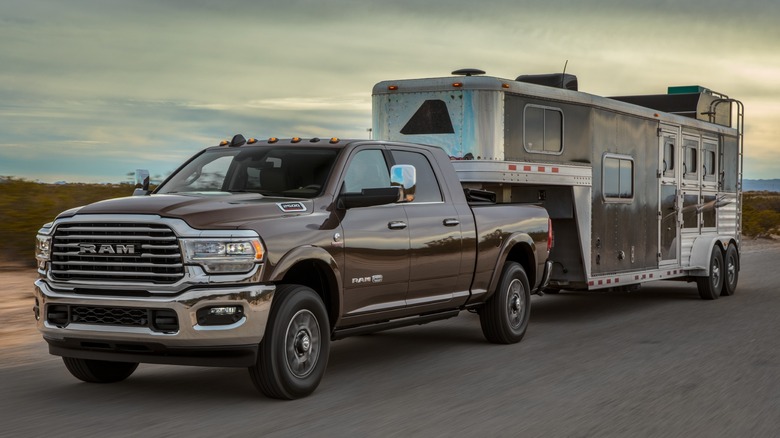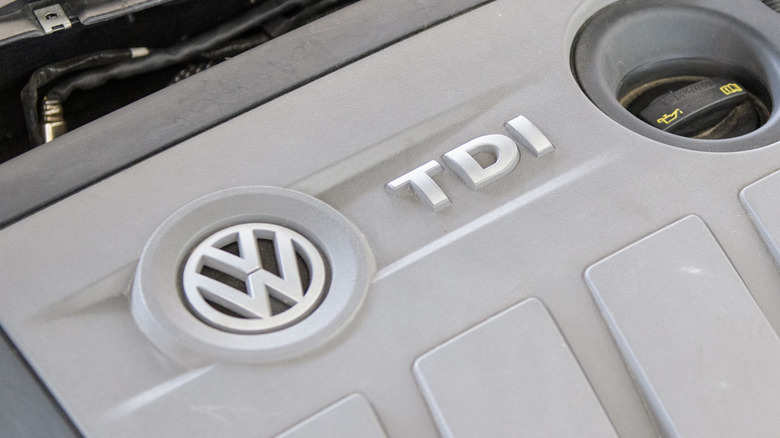Diesel Vs. Gasoline: Which Engine Type Is Better For Your Needs?
Chances are, if you live in the United States, most of you are driving either a gasoline-powered car (or possibly an electric car) with a much smaller group daily driving something diesel-powered. Gasoline and diesel engines, although both utilize some sort of combustible fuel, couldn't be more different from each other when it comes to use cases — even if the vehicle itself has diesel and gasoline versions (i.e., a pickup truck like a Chevy Silverado 2500 HD).
A gasoline engine is perfectly adequate for everyday driving, where your vehicle doesn't need to do any more work than simple transportation or light duty. You won't have trouble finding places to fuel up, and your fuel costs will most likely be significantly less expensive than diesel. Don't misunderstand; diesel-powered vehicles aren't underpowered by any means, but almost every performance car ever made, from muscle cars like the Dodge Challenger to hypercars like the Bugatti Chiron, are gasoline-powered. If daily driving or speed and performance are your thing, gas engines are more than likely your best bet.
Diesel power
If you need your vehicle to do extremely heavy work, diesel is likely your best option. Modern diesel trucks output absurd amounts of power. Here are some examples: a 2023 Ford Super Duty with a High-Output 6.7-liter PowerStroke diesel engine generates 1,200 pound-feet of torque. With its 6.6-liter Duramax diesel engine, the Chevy Silverado HD can put out a maximum of 975 pounds of torque. Lastly, the Ram 2500/3500 fitted with a high-output 6.7-liter Cummins turbo diesel powerplant throws down 1,075 pounds of torque or twisting power. Diesel torque is no joke.
The biggest gasoline engine from Ford, a 7.3-liter V8, only generates 485 pound-feet of torque; Chevy's 6.6-liter V8 produces 464 pound-feet, and Ram's 6.4-liter V8 offers 429 pound-feet. If you need torque, and you need all of it, diesel is the way to go. Diesel engines are typically able to produce much more torque than their gas-powered brethren because the pistons themselves often have a much longer stroke length, allowing for the pistons to "push" a little more. The huge turbocharger diesels are often equipped, which helps matters too.
Enter the TDI
Now that it's been established that gasoline cars are for regular use and diesels are for heavy work and towing, it's time to throw a wrench into things entirely by introducing the TDI line from Volkswagen. Prior to Volkswagen's 'Diesel-Gate" scandal, TDIs were gas-sipping machines of the highest order. Take a 2003 Volkswagen Golf TDI, for example. It probably can't pull a lot with its 155 pound-feet of torque, and it likely can't break any speed records with 90 horsepower from its 1.9-liter turbodiesel four-cylinder.
However, it's astonishingly efficient, achieving an estimated 38 combined miles per gallon, according to Edmunds. If you want efficiency and don't want to make the jump towards a hybrid or EV, an older Volkswagen TDI might be your best bet, and it proves that there are always exceptions to any established automotive train of thought. 38 miles per gallon is absolutely nothing to sneeze at and outshines all but the most miserly gas-powered cars and hybrids.


